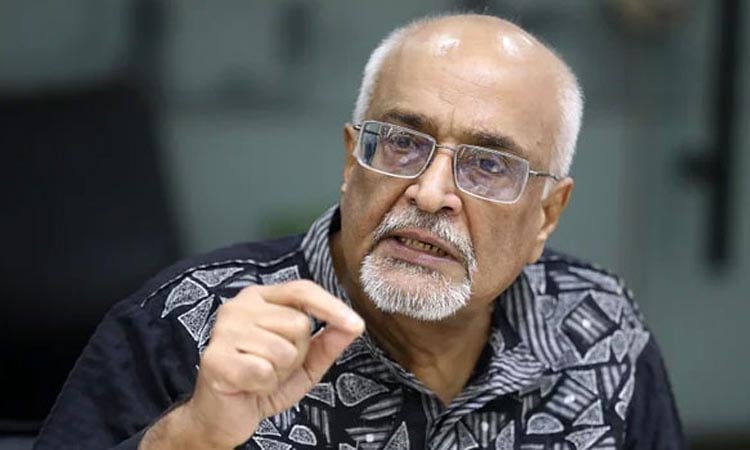News Flash
News Flash

DHAKA, Jan 26, 2025 (BSS) - Dr Debapriya Bhattacharya, Distinguished Fellow, Centre for Policy Dialogue (CPD) and Convenor, Citizen's Platform for SDGs, Bangladesh, has observed that the upcoming Monetary Policy Statement (MPS) should incentivise supply-side responses in the economy and a pursue a credit approach ensuring financial flows to the private sector.
“The next half-yearly MPS (January -June 2025) is to be announced in the backdrop of a critical macroeconomic situation, largely predicated by the misgovernance of the earlier political regime. Indeed, one of the primary tasks of the statement would be to document the state of affairs of the financial sector as inherited by the current government, which has been largely done by the White Paper on the State of the Bangladesh Economy," he said.
The prominent economist, also chief of the White Paper Drafting Committee, said this while talking to BSS in a recent interview at the CPD Centre in the city.
The central bank will announce its new MPS for the second half of the current fiscal 2024-25 (FY25) within first half of next month.
Debapriya said it would be of great value if the MPS lays out the corrective and reform measures that the Bangladesh Bank has undertaken since the new administration took over.
“The expected transparency exercise it should highlight the supply-side responses and should work out a credit approach on how to finance the private sector, particularly in the small and medium enterprises,” he added.
He said the MPS should also consider that some of the sectors are facing a lot of debt burden right at this moment.
“Certain sectors, such as steel engineering and the tea industry, are facing a significant debt burden and thus require more liquidity support,” he added.
For the banking sector at this moment, he said, the major challenge remains that the interest rate is going up, and that is, of course, necessary for a contractionary monetary policy. “But, we see that the interest rate is such that it is now affecting the private investment. Private investment is getting affected so much that the credit growth had been the lowest in the recent past to the private sector,” he added.
So, Dr Debapriya said, the reform in the banking sector is really an agenda which is evolving. He, however, said reforms in the non-banking financial institution sector are urgently needed, and the government may have to close down some institutions that have forfeited their existence.
“I'm afraid in case of non-banking financial institution, it may have to close down some of the outfits which have really forfeited its existence in many ways,” he added.
He said that in the upcoming MPS, apart from continuing with the contractionary monetary policy, the government has to think through how to improve the private investment in such a situation and how to improve the supply side responses with other stimulus from the trade or the fiscal policies.
“We'll have to think through how to improve the private investment in such a situation, how to improve the supply side responses with other stimulus from the trade or the fiscal policies. The government has to think through some of the reform issues which are pending and not yet been attended too,” he added.
Expressing concern about the government's ability to sustain its economic programmes, the economist also mentioned that the government's efforts to stabilize the economy and expose corruption and illicit financial flows are commendable.
“My question before the government is what economic legacy it wants to leave behind. What would be the economic legacy of the current government? That is a question for history. I think they should think about that,” he added.
The noted economist also urged the government to bring about more transparency, to expose the huge extent of corruption and mammoth amount of illicit financial flow.